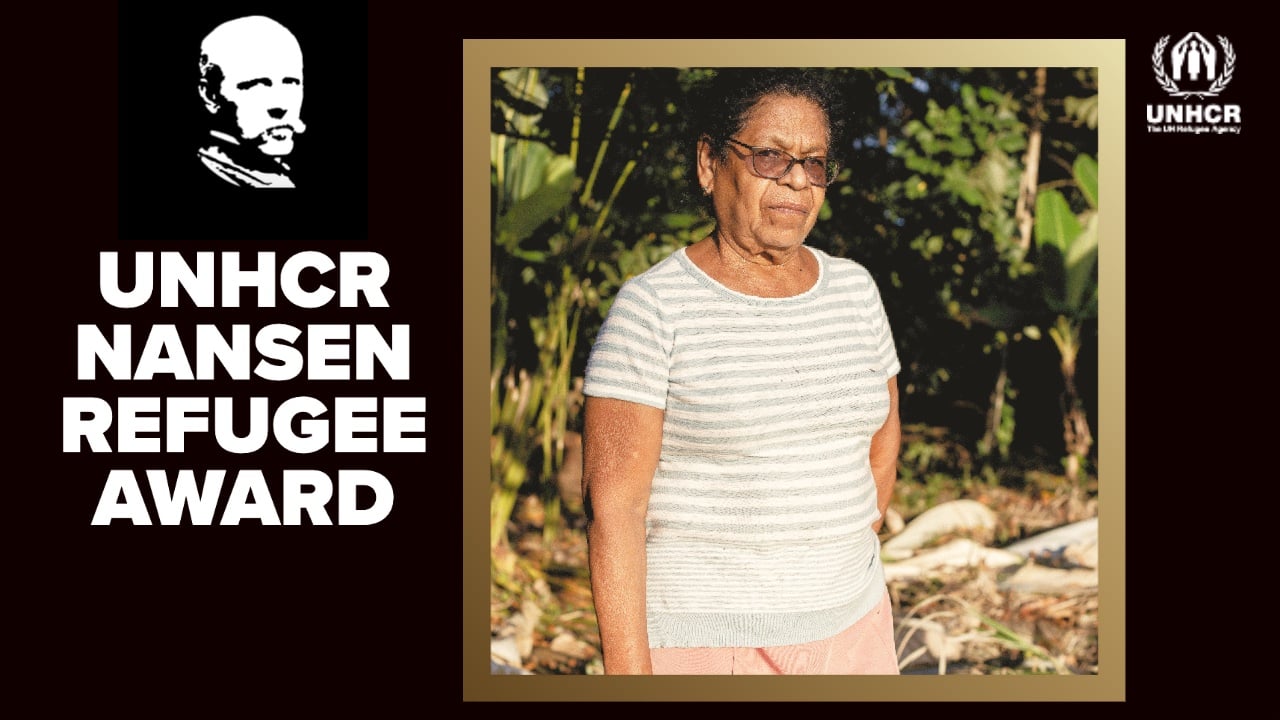Tech developers hope to reshape refugee experience in Canada

Tech developers hope to reshape refugee experience in Canada
Finding a new job is never easy. It is even harder when the city and country are new, a fact that Jean-Claude Puati knows all too well.
He arrived in Montreal two years ago, after fleeing persecution in the Democratic Republic of the Congo – and subsequently South Africa – over his sexual orientation. After spending years on the run, he found work and stability elusive, even in the country that welcomed him.
“It can be so difficult to find work when you first arrive,” says Puati, who eventually found employment at a hospital, cooking hundreds of dishes each day for patients. “But a job gives you a sense of autonomy and self-sufficiency.” Only recently did Puati’s employer realize he arrived as a refugee, seeing only a young man with intense work ethic and a sharp sense of humour.
It is a scenario that is all too common. And Abdullah Daoud wants to rectify it.

Standing behind a glowing screen in one of Montreal’s newest technology incubators, Daoud, the centre’s executive director, paces back and forth making his pitch – channelling the image of every tech maverick leading a high-profile product unveiling. “There’s a mountain of opportunity here. People just need to be guided towards it.”
In the past two years, the Refugee Centre has taken aim at a range of issues: housing, employment and access to education. Supported by student tuition fees, the centre does not just advocate for policy initiatives to help the resettlement of refugees in Canada – it aims to draw deeply on technology, harnessing the potential of young refugees arriving in the city.
“More than 42,000 tech jobs were created in Montreal last year alone,” says Daoud. “We think we’ve pinpointed the future and we want refugees to be a part of that world.”
"Learning a coding language is almost easier than a spoken language."
The centre joins the ranks of technology incubators across the globe turning their attention to refugees and displaced people. Europe already has a number of tech-centred mentorship programs.
Touring Montreal on the first leg of a four-day Canada visit, UN High Commissioner for Refugees Filippo Grandi met young refugees and students to learn first hand about the ways they are rethinking and innovating the refugee resettlement experience.
Organizers at the centre see refugees as an untapped pool of potential in the tech world. Besides offering language classes in French and English, the centre also advertises an intensive boot camp to put those who have arrived recently through the paces of the tech world.
“Learning a coding language is almost easier than a spoken language,” says Daoud, whose parents were displaced from Palestine. “The big tech companies are more interested in the skills you’ve acquired, not your education level.” They have even modelled the space on a startup company. The walls are brightly painted, natural light pours in and art is scattered here and there to accent the open-plan work spaces.
While some of the applications produced by the centre are novel, for example a website for ordering custom hot sauces, much of the programming focuses on displacement. A pair of Syrian refugees are finalizing the development of a website to sell their desserts, a speciality in Aleppo, to the public and the centre is helping them add web functionality to allow for custom orders.
In November, the centre will team up with UNHCR, the UN Refugee Agency, IBM and Google for a ‘hack-a-thon’, a competition in which the public (and tech-savvy participants) are challenged rethink and redevelop a way of safely storing information necessary to make an asylum claim on arrival in Canada.
“Our skills are meaningless unless we share them with others."
Accompanied by Jean-Nicolas Beuze, UNHCR’s Canada representative, Grandi also had the opportunity to watch one of the centre’s newest innovations in action. Still in its testing phase, LUNA AI is a chat application that interacts with people making an asylum claim. Unlike the standard process, in which claimants frequently make mistakes on their applications, LUNA guides newcomers through a series of questions to ensure information is accurate. Many refugees fleeing conflict have access to smartphones, devices that have fundamentally changed the way people communicate and have access to information.
“It is great from every point of view," said Grandi after watching the demonstrations. "From the point of view of innovation, from the point of view of technology, usability and accessibility. It is great because it is done by refugees themselves.”
The UN refugee chief’s visit also gave budding entrepreneurs Ahmed Saeed, a refugee from Eritrea, and Muhammed Idris the chance to showcase their work. The pair are in the process of building Compass, an app that helps refugees navigate medial appointments, language training and housing opportunities in a new city. Compass draws on Saeed’s own experiences in Montreal, condensing useful information into an easily navigable interface. It also highlights the immense struggles new arrivals face in a new country and city.
“Our skills are meaningless unless we share them with others,” says Daoud.








